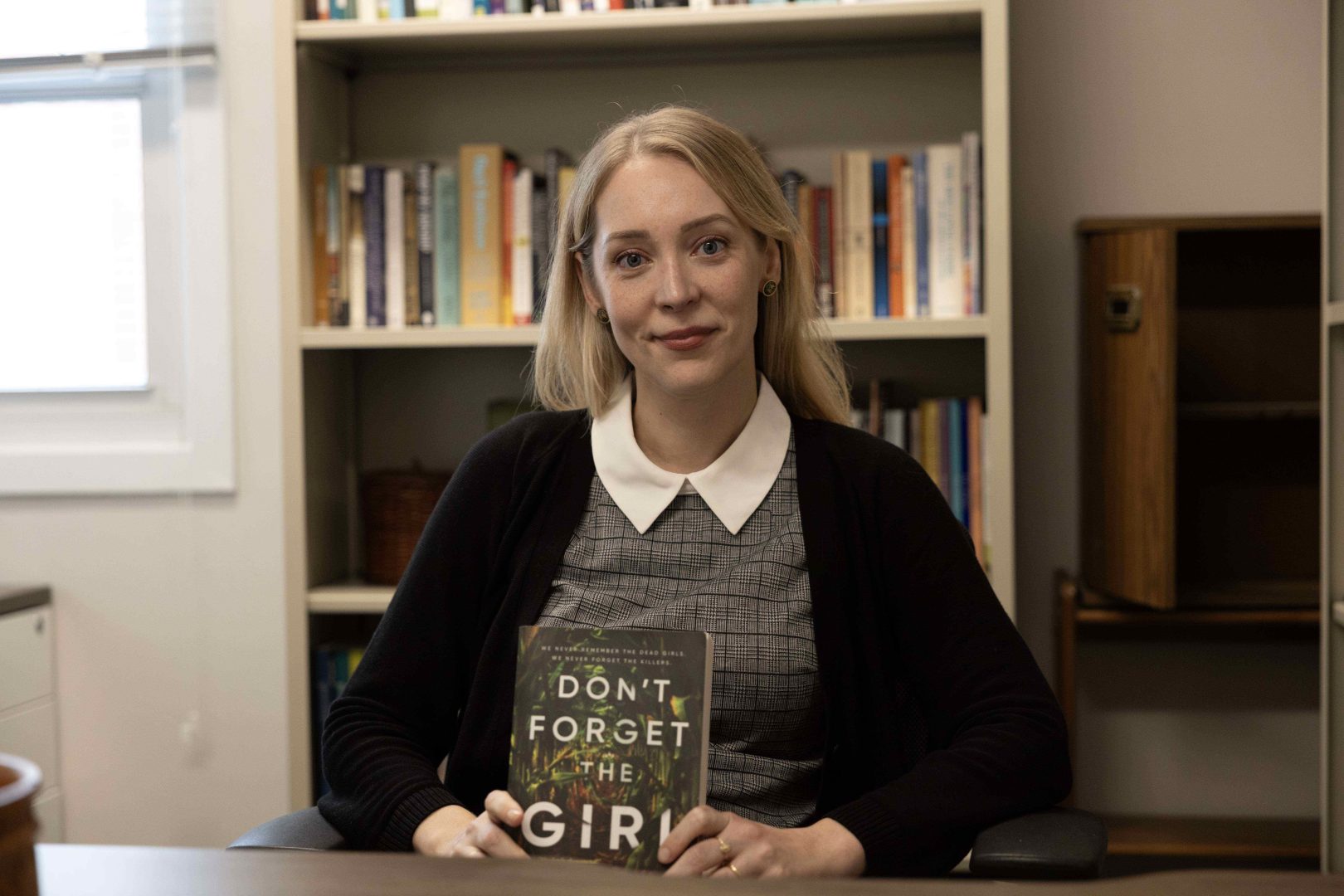Associate Professor of English and Interim Writing Lab Director Rebecca McKanna published her first novel this summer, a true crime story titled “Don’t Forget the Girl.” Published in June, the novel is about three friends, according to McKanna, where one of them goes missing and is presumed murdered by a serial killer. The two surviving friends want answers about what happened to their friend, but the suspected serial killer is set to be executed. The UIndy 360 events page said the novel’s TV/film rights have been optioned by film company HeyDay Films, meaning that an agreement has been made where the author gives a potential producer the rights to try and get the movie “set up,” according to Agents and Books.
“I think I was always drawn to crime stories, and was interested in true crime myself, but I started to get kind of skeptical about that,” McKanna said. “…I wanted to write something that kind of had those thriller elements but wasn’t putting the focus on like the serial killer rather than on the victim and their loved ones.”
McKanna said she is originally from Iowa and started teaching at the University of Indianapolis as a full-time faculty member in 2017. Before writing “Don’t Forget the Girl,” McKanna said that she started with various short stories, and one of these stories was written about a girl who develops romantic feelings for a serial killer. This played a role in the inspiration behind her novel.

“I feel like [writing is] kind of how I metabolize experiences in the world,” McKanna said. “So I think, really, anything can inspire me. I often write about things that I don’t understand.”
While McKanna said that readers might want to be prepared going into the novel if they have experiences with violence or grief, but readers have also praised the book. Publishing her writing has been a lifelong dream, according to McKanna, and she said that she has enjoyed talking to people who have been moved by her storytelling.
“I’ve been lucky. It’s only been nice,” McKanna said. “People will randomly message me, strangers, and it’s some of those messages that have been really meaningful and really, really sweet.”
For students looking to publish their own novels someday, McKanna said she advises them to take creative writing classes offered at UIndy. Other than that, McKanna advises writers to write a lot and to write through bad writing. A lot of writing is going to disappoint, McKanna said, but it is in the revision process where that can turn into something bigger.
“…I published a lot of short stories and then, my now agent, read one of them in a literary journal and contacted me,” McKanna said. “That’s not how it usually happens. People usually do what they call querying. And so for a fiction book or novel, you need to have the full book done. And then you go and query a bunch of agents to see if any of them want to represent you. … once the book is done, and they kind of go back and forth with you on revisions and things like that. Then they try to sell your book to publishers, and when it gets published.”
McKanna said that the novel writing process took nine months and revisions between her and her agent lasted about another year. After that, she started the long process of actually publishing what she wrote. According to the Greenleaf Book Group, authors can expect the editing and publishing process to take nine months to two years—with one and a half years being the average.
“… The book wouldn’t come out for a couple more years,” McKanna said. “Part of that time was revising one more time with the editor. And then the rest of the time is just preparing the book for publication doing like pre-publicity, stuff like that. So it’s a long process.”
McKanna said that oftentimes the difference between someone who gets published and someone who does not is persistence and stubbornness. Discouragement is normal and part of the process, and it can often signal that one is on the right track, according to McKanna.
“I’ve been lucky to have some really great ones,” McKanna said. “And my favorite part of my job is reading student stories. Like I absolutely adore it. So they [students] should take Intro to Creative Writing or, you know, some of our other creative writing classes.”








